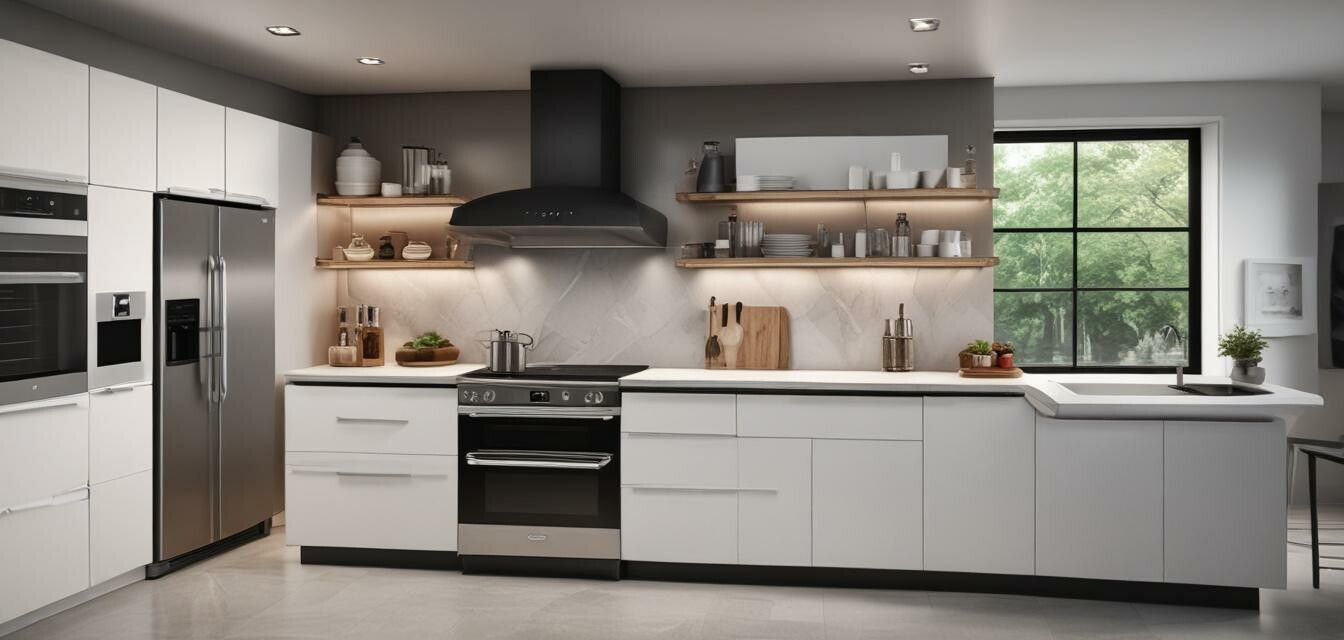
The Future of Smart Appliances in Culinary Schools
Key Takeaways
- Culinary schools are incorporating smart kitchen technologies into their programs.
- Future chefs are being prepared for tech-centric kitchen environments.
- Smart appliances can enhance culinary education through interactive learning experiences.
- Understanding energy-efficient appliances is key to sustainable practices in cooking.
- The integration of smart technology helps students adapt to modern kitchen demands.
As technology evolves, so do the kitchens where culinary students spend countless hours honing their skills. The rise of smart kitchen appliances is transforming how culinary schools educate future chefs. These institutions are adapting their curricula to include not just traditional cooking methods but also the modern technologies that will define the kitchen landscape of tomorrow. In this article, we'll explore how culinary schools are embracing smart appliances and preparing students for a tech-centric culinary world.
The Integration of Technology in Culinary Education
Culinary schools have long focused on teaching students the essential skills of cooking. Now, with the inclusion of smart appliances, they also emphasize the importance of understanding technology. Smart ovens, Bluetooth-enabled devices, and touchless faucets are becoming integral components of professional kitchens. Here's why:
Benefits of Smart Technology in Culinary Schools
- Interactive Learning: The use of smart appliances allows for a more hands-on learning experience, enabling students to interact with technology while they cook.
- Real-Time Feedback: Smart devices can provide immediate data and feedback, helping students adjust their techniques and understand the science behind cooking.
- Energy Efficiency: Understanding the use of energy-efficient appliances is critical to promoting sustainable practices in modern kitchens.
- Adaptability to Industry Changes: As the culinary industry evolves, students trained with smart technology will be better equipped to meet market demands.
How Culinary Schools Are Implementing Smart Appliances
Culinary schools are integrating smart appliances into their training programs in various ways. Here are some strategies they are using:
| Implementation Strategy | Description |
|---|---|
| Curriculum Development | Schools are revising their curriculums to include lessons on how to effectively use smart kitchen appliances. |
| Partnerships with Tech Companies | Collaborating with technology firms to acquire the latest smart appliances for use in training. |
| Workshops and Training | Offering workshops that focus on the operation and advantages of high-tech kitchen tools. |
| Hands-On Experience | Providing students with real-world experience by working with smart appliances in a simulated kitchen environment. |
Challenges in Adopting Smart Appliances
While incorporating smart appliances offers many benefits, culinary schools face some challenges:
Pros
- Enhances learning through innovative tools.
- Prepares students for a modern workforce.
- Promotes sustainable cooking practices.
Cons
- High costs of equipment may limit access.
- Potential for technology to malfunction in a learning environment.
- Requires ongoing training for faculty to keep up with advancements.
The Future of Culinary Education
The culinary landscape is constantly changing, and the integration of smart technology into culinary training is just the beginning. Future chefs trained in tech-savvy environments will redefine cooking approaches and contribute to a more efficient and innovative culinary industry. As highlighted in our article on latest trends in kitchen technology, the emphasis on smart appliances is a growing necessity.
Preparing for an Evolving Industry
Culinary schools must remain ahead of trends to equip students with the skills needed for success. By adopting smart kitchen technologies, these institutions are ensuring that their graduates are ready to lead the charge in the future of cooking. As the industry shifts toward more integrated kitchen systems, understanding how to operate these tools will be paramount.
Conclusion
The future of culinary education lies in the embrace of technology alongside traditional cooking methods. As culinary schools incorporate smart kitchen appliances into their programs, students will be better prepared for the challenges and innovations of the modern culinary world. Staying informed about these advancements allows aspiring chefs to thrive in their careers.
Tips for Culinary Students
- Stay current on technology trends in the kitchen.
- Practice using smart appliances at home to gain familiarity.
- Engage in discussions with instructors about technology integration.
- Participate in workshops focused on smart kitchen technology.